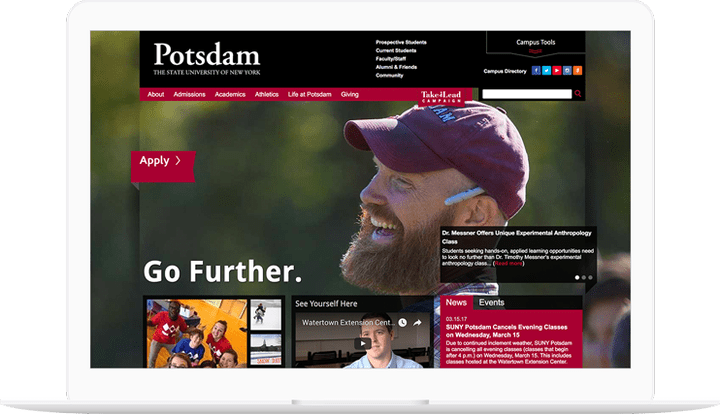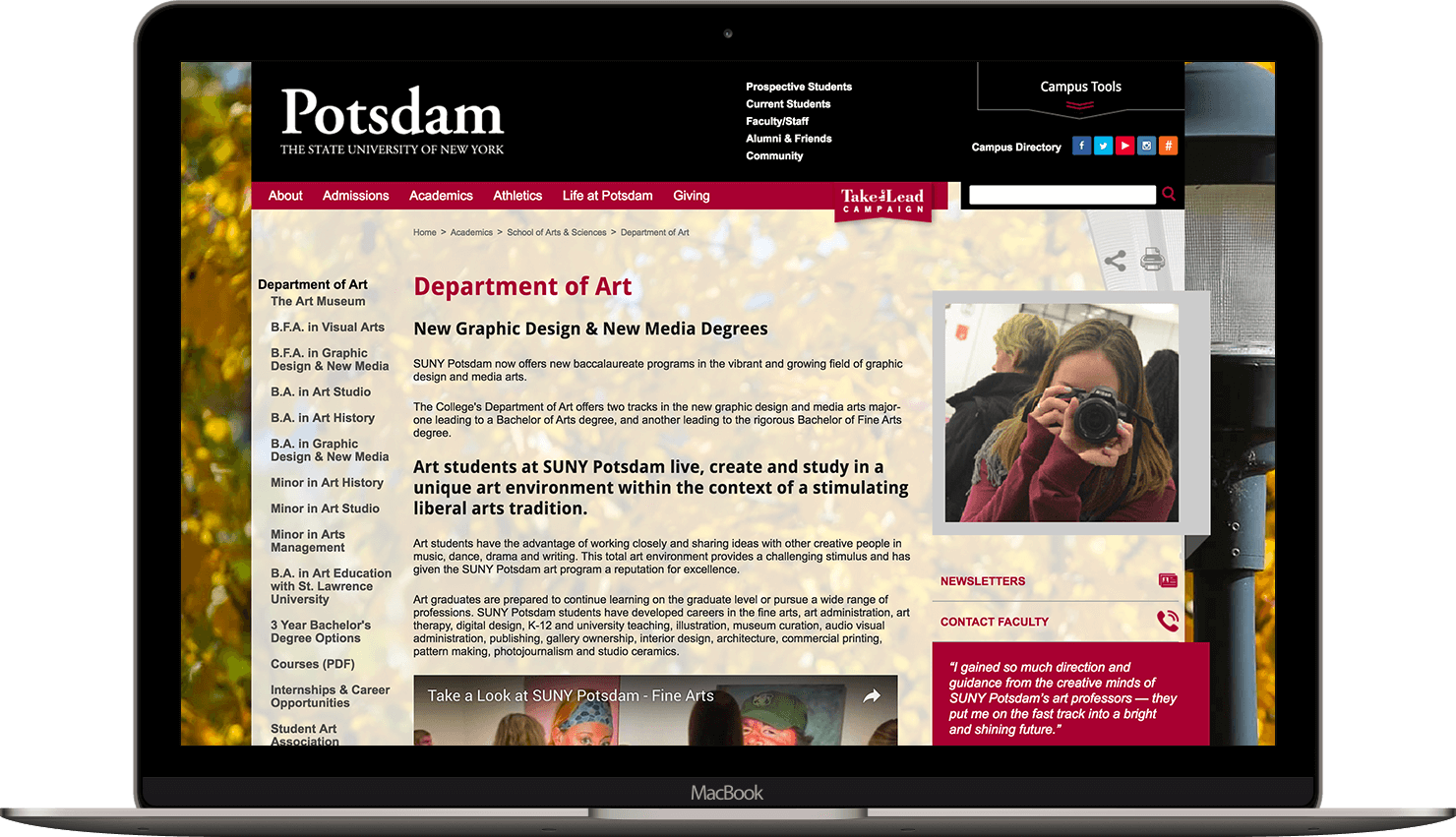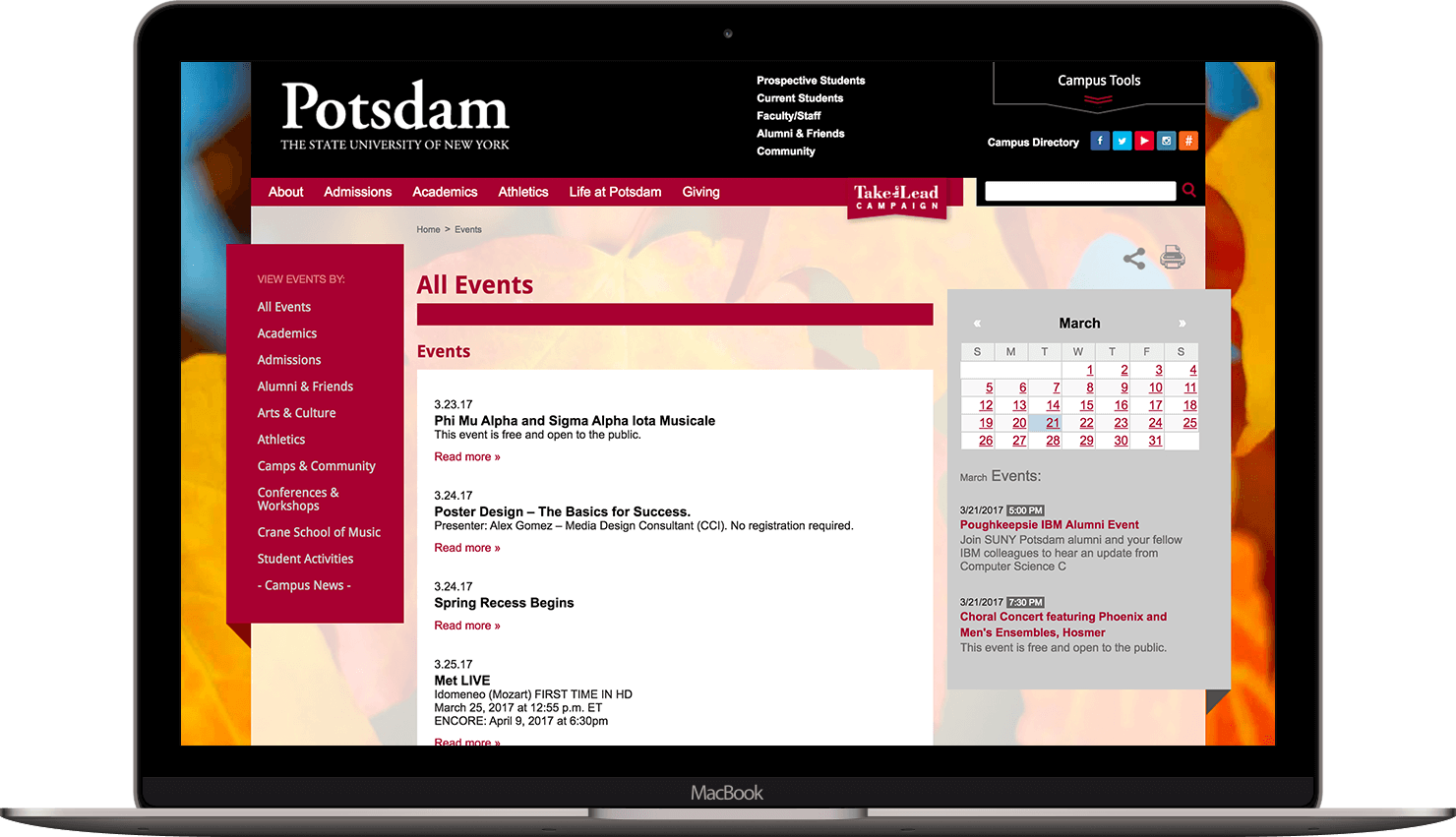Forklift to Drupal 7 in 8 weeks


- Agile/Kanban
- Agile/Scrum
- Continuous Delivery
- XP
-
Senior ArchitectTom Fleming
Leveraging a small multidisciplinary production team and agile methodologies, LCM migrated SUNY Potsdam from their self-hosted legacy CommonSpot CMS to Drupal 7 on Acquia in just 8 weeks.
The small team at the SUNY Potsdam Office of Public Affairs had been managing the proprietary CommonSpot CMS since its implementation in 2008. It was inflexible and the team struggled with reliability issues, so SUNY Potsdam was looking for a more useable, stable, efficient, and scalable solution. They chose Drupal 7, Acquia, and Last Call Media.
SUNY Potsdam partnered with Last Call Media and Acquia to migrate their site to Drupal 7. Leveraging the scrum methodology, LCM broke down and organized the major site features into a prioritized backlog, groomed for two-week iterations. While planning and backlog refinement was ongoing several times a week, the core development team at LCM met with Potsdam every other Friday to review work completed, provide training on the new CMS, and to facilitate the feedback-gathering process.
Since SUNY Potsdam had recently gone through a redesign, the project required the new site to maintain the existing look and feel. We began with an in-depth audit of all the different page types and page elements. Instead of doing this manually page by page, we first looked for a programmatic solution. Since CommonSpot did not provide a way to generate this information within the CMS, LCM used its HTML Crawler tool to programmatically crawl the existing production site and analyze the various HTML tags to determine page elements (such as slideshows, feeds, etc), including where and how often they appear. This provided tremendous visibility into the site’s underlying structure, which was critical in planning our approach to the migration to Drupal.

After reviewing this data with SUNY Potsdam, we began the process of consolidation– instead of building one-off page elements, we consolidated similar elements into single widgets that behaved differently based on where on the page it was placed. This helped reduce the vast number of options a content author has to choose from, making it easier for them to do what they need to do: focus on the content. To achieve the desired platform flexibility, LCM built a repository of flexible and adaptable widgets to allow the marketing team at Potsdam to build custom pages.
The migration included several different page templates and tens of thousands of pieces of content, which required writing and testing a series of migration scripts to get all the content from one CMS to another without downtime or a lengthy content freeze. Since the CommonSpot installation did not have a concept of structured content, LCM used it’s HTML crawler tool again to programmatically identify page content and then map it to its new location in Drupal. Once the custom scripts were written and tested, the migration took only 15 minutes for tens of thousands of pieces of unique content and the associated metadata, such as date published, authoring information, and URL.

The new site also pulls in events automatically from their event management system, SOGo, and tags the event to the relevant department or office in the CMS so that it appears on that organization’s page.
Lastly, in order to make it as easy as possible for content authors to login to the site, we leveraged the identity management service at Potsdam, Active Directory, to allow users to use their domain credentials to authenticate with Drupal.
This project addressed several internal pain points with the SUNY Potsdam main website, allowing the marketing team to move from maintenance and support tasks to other organizational priorities. The site loads blazingly fast on Acquia, and Potsdam continues to work with LCM in an ongoing support relationship.